BUTLER UNIVERSITY
PHYSICIAN ASSISTANT MAGAZINE





Innovative teaching and learning, service, and leadership are hallmarks of our PA Program. The mission and core values that define our Program prepare graduates to develop a vision that can improve healthcare in their communities and give them the fortitude to remain committed to that vision.
Graduation is a time to recognize the completion of a program and to celebrate the commencing of a new chapter. It is truly a time for honoring old traditions and for embracing new opportunities. We welcome 71 new graduates to alumni ranks this May. These graduates are eager to begin the practice of medicine and they are ready!
There were over 130 alumni who helped teach or served as preceptors to these May graduates. We’re enormously proud of our alumni and all that they do for our students. Thank you!
I want to take the opportunity to congratulate Physician Assistant Courtney Doran, who was selected by our program as an honorary member of Pi Alpha for 2018. Thank you, Courtney, for your efforts in leadership to the state of Indiana and for your work with our program!
If you are going to the AAPA conference in New Orleans, stop by the Butler PA Program Alumni reception and reconnect with faculty and other alumni on Sunday, May 20, 2018 from 5:30–7:00 PM in the Hilton New Orleans Riverside Hotel.
Whether in New Orleans or here on campus, we would love to see you!
Go Dawgs!

page 4
CLASS of 1998 HIGHLIGHTS
page 6
ALUMNI SPOTLIGHT
page 8
STUDENTS
page 9
A DAY in the LIFE
page 11
FACULTY HIGHLIGHT: BETSY SCHMIDT
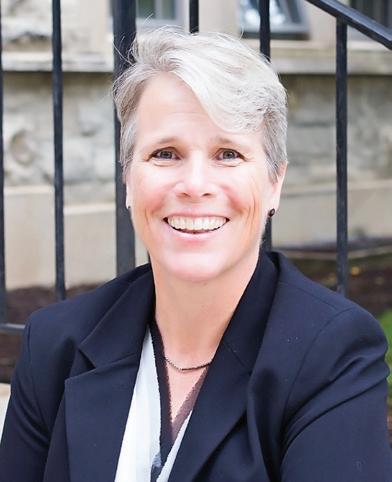
page 12
PRECEPTOR HIGHLIGHT: JULIE LOWE
page 13
BRIDGING THE GAP page 14
JANUARY CME RECAP
Jennifer Snyder ’97 Professor and Program Director
Physician Assistant Program
Chair, Department of PA Studies Butler University
Professor and Program Director
Physician Assistant Program
Chair, Department of PA Studies Butler University
to Rick Siersma ’18 who will be commissioned into the United States Air Force immediately following graduation in May. “It’s pretty exciting and I’m definitely nervous too,” Siersma says. He will be stationed in San Antonio, Texas. Thank you for your service, Rick! You make us proud!
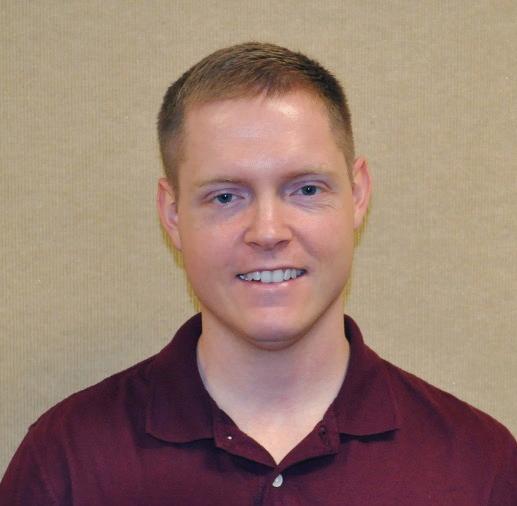
It is always exciting to learn what our PA alumni have accomplished since graduation. We are pleased to highlight a few graduates of the Class of 1998 and where they are now.
What are you doing now? Contact us at PAprogram@butler.edu.

Elizabeth Eaton of Brownsburg, Indiana, has worked at Optum/United Healthcare for the past six months. She enjoys making contributions to the PA profession by precepting and teaching whenever she can. As Eaton practices, she keeps in mind something she was taught early on in her Butler PA education, “Give good care, just give good care.” She passes this advice along to the PA students she works with today. In her spare time, Eaton enjoys her crazy life with her husband, two children, and their dog.

Heather Kennedy currently lives in Cincinnati, Ohio, where she’s worked as a PA in the Department of Orthopedics and Sports Medicine at the University of Cincinnati/UC Health for over 15 years. Kennedy enjoys mentoring pre-PA students and precepting PA students interested in orthopedics. She finds it rewarding to help others start along this path. “Everything I am and everything I know as a PA came from my professors at Butler,” Kennedy shares. “Every time I have to recertify, it amazes me the things I still know from the foundation I received at Butler.” In her spare time she loves to travel, read, and watch movies. Kennedy’s love of learning continues, as she is currently pursuing her PhD.



Karen Johnson lives in Indianapolis and works for Activate Healthcare, an employer-based clinic where she’s served as a family practice PA for the past five years. Her practice has an emphasis on improving wellness. She contributes to the PA profession by precepting at Butler and educating the public on the role of a PA. She stays busy outside of work with her four kids and their various activities. Johnson has “fond memories of Dr. Lucich, as he was one of the only faculty members back in the day!”

Suzi Weigel lives in Indianapolis and has worked with the Franciscan Physician Network Indiana Heart Physicians since she graduated 20 years ago. Weigel is specialized and board certified in Electrophysiology, but sees a mix of general cardiology patients as well. For the past seven years, she has managed the Pacemaker/ICD Device Clinic. Weigel enjoys working with her team and remains passionate about her practice, always keeping in mind advice her Butler faculty gave her many years ago, “Patients don’t care about how much you know. They want to know how much you care.” Weigel has been married to her husband for 39 years and although their three sons are grown, her 5-month-old granddaughter keeps her busy in her spare time. She is active in her church with Bible studies, choir, and other social activities.
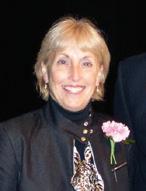
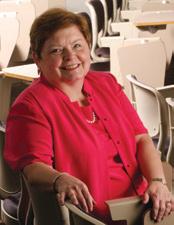

Megan Wesler Larsen is constantly stretching her limits. Both on the job and in her free time, no day is the same for Larsen. She is a PA with the busy Trauma and Emergency Surgery team at Northwestern Memorial Hospital in downtown Chicago. Northwestern is a Level I Trauma Center, so one can never predict what will come through those doors. Larsen is part of a team of two first year Residents, a Chief Resident, and an Attending Surgeon. Her responsibilities primarily keep her on the surgical floor, managing the team’s pre- and post-op patients, from admission to discharge. Part of her role is to provide continuity, as the residents rotate off every four to five weeks. Larsen is responsible for knowing the patient’s history, communicating with consulting services, ordering and evaluating labs and imaging, and performing necessary procedures. She does find herself in the ER as well, working up new cases. Larsen loves the “methodical, yet somewhat chaotic workup of a trauma patient.” She notes there are algorithms to follow, but one needs to be able to break off and think critically when a patient veers off track.
Larsen credits her PA education at Butler University with giving her the confidence to work in such an intense setting. She notes that the expectations of the PA faculty are very high. “The attention to detail can be infuriating as a student,


but you are so well prepared when you complete the program.” She has fond memories of being on the Challenge Bowl Team at the AAPA conference in Washington, DC because it was a great way to stay on top of material and prepare for the upcoming board exam. She remembers how much she enjoyed the opportunity to spend time with faculty and students in a different setting. She praises the way the Program trained her to learn on the job and make critical decisions.
Larsen’s first job as a PA was working in the Community Hospital system as an Emergency Room PA. She did not see much trauma in that setting, but really honed her skills in medicine and procedures. She is happy with her decision to choose a role that challenged her, reinforced her skills in medicine, and forced her to stay current on procedures. This first experience provided an excellent foundation for her current role at Northwestern.
Keeping current in her role as a trauma team PA does not keep Larsen from stretching herself outside of work. She caught the travel bug while a student at Butler during a trip to Guatemala where she immersed herself in the language, and participated in outreach projects with reforestation, medicine, and the local orphanage. She has been to Uganda on a medical trip with a team of surgeons, and recently returned from Thailand. Larsen is committed to traveling to a new country every year. While stateside, she loves to bake and cook. She follows a number of food blogs and is experimenting with plant-based nutrition. She lives with her husband, Caleb, who is finishing medical school and as they await a match for his residency, she remains open to what the future will bring.
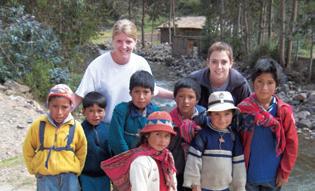
Rob Estridge knows that job success is not related to the number of hours one puts in but by what one can accomplish in those hours. Starting out as a private PA in neurosurgery and then transitioning to emergency medicine and working up to 18, 12-hour shifts per month, Estridge recalls his daughter asking (who was 5 at the time), “Daddy, when will we see you again?” It was then that he realized he needed an improved lifestyle.
For the last six years, Estridge has practiced medicine in inpatient neurology and neurosurgery at the Cleveland Clinic Main Campus. Shortly after he was hired he was asked to serve as the Advanced Practice Provider (APP) Manager. At the time, the APP team was made up of six individuals and quickly grew to 14 after Estridge’s business plan was implemented to provide 24/7 coverage of their inpatient service lines. He was then was tasked with managing the NICU group, which put the number of APPs he oversaw to 22.
When asked what aspect of his current role at the Cleveland Clinic gets him out of bed in the morning he replied, “As a PA, my autonomy is expected and docs consistently look for me to pick up on inefficiencies. In my health system, I am respected as a change agent.” One example of Estridge identifying a need for change related to lumbar punctures. He saw there was a lack of skill/training by the people who were called upon to perform the procedure. Estridge was proficient and comfortable teaching others so he created an inpatient spinal tap service. He carries a pager and is called upon to perform/teach lumbar punctures to medical
residents and PA/NPs, doing up to four a day. “I get excited to watch them really grasp this intricate procedure and know that the patient is going to have an improved experience as well.”
Estridge participates in multiple quality committees for the hospital, institute, and centers.

He was asked to start teaching at both the Case Western and the Baldwin Wallace PA Programs and serves as a preceptor to their students. When asked how all of this impacts his intention for an “improved lifestyle” he explained that he has a set schedule of 7:00 AM and 4:00 PM and does not get regularly called upon outside of those hours. He attributes this to having a staff made up of colleagues whom he leads by example modeling his motto of Competence, Confidence, Firm Foundation (a play on words he coined to mirror the CCF-Cleveland Clinic Foundation). “When I leave work, I leave. I’m an elder at my church, go to all my girls dance classes, coach soccer teams, and may even assist in my daughter’s ballet performance this summer. I couldn’t flaunt these possibilities practicing medicine, unless I was a PA.”

What does he like most about being a PA? “As healthcare evolves, our insight into medicine and potential to practice has almost no ceiling as a PA. I am proud that when I recognize inefficiencies in medicine, I have a seat at the table with executives who are asking my opinion.”
Estridge lives in Bay Village, Ohio, and when not hard at work, he enjoys dates with his wife Melissa, reading, teaching, volunteering at church, and spending time with his daughters Abby (11), Ellie (9), and Maddie (6).
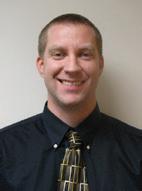
Shortly after starting the Butler University PA Program, Kathleen Holec ’19 applied for an open position on the Physician Assistant Education Association (PAEA) Board of Directors as the Student Member at Large. Holec has always been interested in education and was familiar with the work of PAEA, so she applied. Holec was thrilled to be chosen and quickly became accustomed to incorporating her PAEA duties and travels with her studies here at Butler. Her responsibilities as a voting member of the board include a monthly conference call and four quarterly PAEA Board of Director meetings, both of which require advanced preparation. She notes that preparing for, and participating in, PAEA board activities provides different challenges than her PA studies do.

Holec has enjoyed the creative thinking and more conversational discussion that the board position requires. She adds that her fellow board members are really interested in her “bringing the student perspective into the conversation,” by asking questions such as “from your lens as a student, how do you feel this change would affect you?” Holec has already gained much from the experience, relaying that she has grown and developed as a leader by observing the different approaches to problem solving by members of the board. She is excited to see what the future of PA education is, as she hopes to incorporate a role as an educator into her future career plans.
Taylor Skala ’18 did not always know attending Butler University, or even becoming a PA, was in her future plans. The PA Program is thrilled Skala landed here as we have witnessed growth in her great character, cheerful personality, and outstanding service and leadership.

Once Skala interviewed for the Butler University PA Program, she knew she had found the place for her. The interview process provided her with multiple ways to shine and she loved the people she met. Now Skala serves as a co-leader of PA Student Ambassadors (PASA) who host prospective students during weekly campus visits and assist with the interview process, virtual PA fairs, and other recruitment activities. Skala believes the student-to-student interaction is extremely valuable when determining which PA Program will be the best fit for a prospective student.
Skala’s love for service and experience with Relay for Life served her well when she organized “Kyle’s Krew”—a team to support classmate Kyle Geiss ’18 and to raise money for cancer research. And raise funds they did, earning first place by raising over $51,000 for the Butler University chapter. Skala was named the highest fundraiser for the American Cancer Society in the region. “I’m not above the ask,” she says. She reached out to many people to request they give to this worthy cause.
Skala also had the unique opportunity to work with Program Director Dr. Jennifer Snyder ’97, reviewing data to look for correlations between PA programs across the country that are on probation. She greatly appreciated working with faculty on a different level. Skala was excited to learn recently that she will be published for the first time and states, “Oh yeah, I would do it again.”
As Skala finishes her final rotations, she encourages incoming students to “stay on top of their work, but to make sure to enjoy yourself. Take time to make connections with classmates and preceptors.” As for Skala’s future career plans, she says that at this time she’s “open and has some highly favorable options.”
HOMETOWN: Mason, OH
UNDERGRADUATE DEGREE: Health Sciences
5:45 AM—Slowly wake up and get ready for the day. Brew coffee, pack a small lunch, and eat a bowl of cereal before I head out the door.
6:50 AM—Drive to Lafayette East Hospital. Listen to PA podcasts on the way to fit some learning in.
7:50 AM—Arrive at Lafayette East Hospital. Prepare for morning rounds by reviewing patient vitals, labs, meds, and new imaging studies. Scribble questions on paper for my attending physician.
8:45 AM—Attend multidisciplinary rounds. Talk with physical therapists, social workers, nursing staff, dieticians, and pharmacists about concerns and changes in a patient’s treatment. Meet my attending and discuss patients for the day.
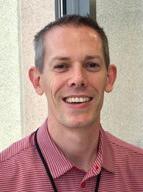
9:30 AM—Make rounds with my patients. I start with the sickest patient, typically in the ICU, and work my way through the cardiac care unit, medical-surgical unit, and observation unit. Find time in between to write progress notes on patients.
Someone recently asked Katie Trinh ’18 from Mason, Ohio, what she was most proud of and she replied, “How far I’ve come in my clinical knowledge and training.” She shared that the “early mornings and late nights of her didactic year were worth it.” The ‘aha’ moment she experiences in the clinical setting is gratifying because she independently applies her classroom knowledge in a real world setting.

Trinh recognizes how blessed she is with the education, opportunities, and clinical experiences provided by the Butler PA Program. A unique and favorite moment during rotations was during her women’s health rotation where she had the opportunity to visit the Indianapolis Zoo and assist in an ultrasound on a female orangutan. She regualry reflects on the long hours spent in the OR, the insightful moments with patients at their bedside, and the many procedures performed over the past several months. “It’s true when they say that the days are long and the years are short because the past three years have been a whirlwind,” she expresses as she nears the end of her PA education. As the number of rotations left begins to dwindle down, Trinh is eager to begin her career as a practicing PA. She is excited to treat her own patients and build relationships with them.
When Trinh is not studying or at the hospital she can be found cooking, reading a book, or at a Butler basketball game. She plans to stay involved with the Butler PA Program in the future.
NOON—Eat lunch while researching patient diseases and treatment. I try to be as thorough as possible in their care.
1:00 PM—Meet with my attending and update him on my patients. Talk in depth about their treatment and what specialists may need to get involved.
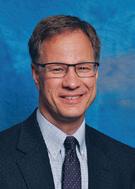
2:15—My attending is paged from the ED about a new admission. Go to the ED to perform a complete history and physical exam.
3:30 PM—Receive a page from the cardiac care unit. A patient complains of shortness of breath. Run upstairs to perform a quick H&P exam.
4:30 PM—Get discharge papers ready for a patient from the medical-surgical unit. The patient had hip surgery and will be transferred to a rehab facility.
5:00 PM—Check that all charts have been cosigned and all orders have been placed. Time to head home.
6:00–8:00 PM—Throw a frozen pizza in the oven for dinner. Watch Shark Tank with my roommate for some needed R&R.
9:00 PM—Log patients on E-value and study for my end of rotation exam until I can’t keep my eyes open. Then it’s lights out.





Q: What are your responsibilities in the PA Program?
A: Since joining the Butler University PA Program in October 2015, I have taught a variety of courses. I am the course coordinator for Health Promotion, Disease Prevention, and Nutrition; a lab instructor in History and Physical Exam, Healthcare Communications, and Clinical Procedures; and teach into both Clinical Integration and the Summative Exam courses. I am a member of the PA Admission and Assessment Committees, as well as the COPHS Assessment Committee. I serve as advisor to Health Sciences students and the PA Class of 2019.

Q: Can you describe the service leadership role you have with PAEA?


A: I joined the PAEA Exam Development Board in 2017. This team develops PA exam products from start to finish including writing questions, reviewing peer writer’s questions, and studying the statistical analysis of answers to questions.


Q: What do you like most about your role in the PA Program?
A: I love the relationships I have with my students. Whether for one class or a whole course, I enjoy the planning aspect of how to best teach a concept, how to make it stick with practical active learning, and then assessing whether it worked or not. Whether working with a small group or large classroom, I am inspired by my students. I look forward to serving with them as colleagues.
Q: What is your previous work experience?
A: After graduating from Butler, I worked in emergency medicine in the Community Hospital Network and later orthopedic surgery for a private practice. Prior to returning to Butler, I worked for a small medical distributor training their sales representatives on products such as pharmacogenetic testing and topical pharmaceuticals.

When I was pregnant with my first child, I started PA Surgical Services, a company that provided surgeons the opportunity to hire non-employed PAs for surgical assistance as needed. I served in a variety of capacities as the company grew, even working clinically and eventually serving as the administrator. My husband Kevin ’99 also joined the team serving in surgery, networking, and recruiting PAs.
Q: What drew you back to your alma mater to teach?

A: Shortly after graduating from Butler, I gained experience teaching while lecturing in Clinical Medicine. Years later, while listening to a speaker at a board review course, it just clicked and I leaned over to my husband and said, “That is what I want to do.” Kevin agreed and encouraged me as he thought I would be good at teaching.


Q: How do you like to spend your time outside of work?
A: I love spending time with my family, including my husband of 17 years and our four children (Andy 15, Kiersten 13, Liesel 12, and Caroline 10). I also love cooking good food, reading, running, and being
We want to hear from you. Share personal and professional updates with your classmates. We would love to hear about your marriages, births, job promotions, publications, achievements, and much more. Submit your news and photos by emailing PAprogram@butler.edu.
YOUR NAME (maiden and married)
CLASS YEAR
CURRENT EMPLOYER
EMAIL ADDRESS
PREFERRED PHONE NUMBER
MAILING ADDRESS
YOUR NEWS (professional and personal)
Please share this with classmates and friends who may have lost touch with the Butler PA program.
Q: What brought you to your current position?
A: I knew I was interested in a surgical career going into PA school. Luckily, I had electives that let me explore different surgery sub-specialties. After a rotation with Premier Surgical and Dr. Diekhoff, I was blown away at how fun general surgery was. All of my other surgery rotations were interesting, but nothing felt as good a fit as working with Premier Surgical. After graduation, I began working with Dr. Clark and Premier Surgical’s bariatric program and I’m still there today in my 13th year. One of the best life decisions I’ve ever made!
Q: What do you like best about being a clinical preceptor?

A: I love seeing all of these bright, smart, motivated young adults come through and feeling like we’ve given them not only a great clinical learning experience, but also good career and life advice—those are the moments I really enjoy. And if they leave loving surgery, that’s just a huge bonus!
Q: What do you perceive to be the biggest challenge students encounter in your scope of practice and what advice do you give them?
A: Surgery can be intimidating so I see a lot of students feeling super uneasy or nervous as they start our rotation. I want them to realize that no one is comfortable the first time in the OR. It’s a weird place! I encourage them not to feel pressured to be perfect out of the gate and to give themselves time to process the crazy world of surgery. I tell them to use the nurses, anesthesiologists, surgeons, and all of us as allies and mentors; to learn from everyone; and be a good team member—because that will get you very far in surgery.
Q: Favorite thing about precepting PA students?
A: I can’t say enough good things about all of my Butler students. They are top notch and have an enthusiasm for becoming PAs, and it’s just so great to be a small part of their start in the PA profession. It is an honor to have a group of former students that still use me as a reference and reach out to me for career advice. The best is working with them now as peers. That makes me very proud as a Butler preceptor.
Julie, who is a 2005 graduate of the University of St. Francis, is married to Brian Lowe and has two daughters, Maggie (2) and Emma (1). They live in the Geist area of Indianapolis and when not hard at work love sports, spending time outdoors, boating, golfing, spending time with their families, traveling, and doing DIY projects around the home.
The goal of PA education is to promote a medical curriculum that is competency-based so as to effectively meet the needs of patients while in clinical practice. As PA educators, how do we bridge the gap between education and clinical practice?
A standard way for medical learners to understand anatomy is to look inside the body by working on cadavers. But working on embalmed, preserved bodies is different from working on fresh tissue. Our PA Program has partnered with the Medical Academic Center at the Indiana Spine Group who specializes in providing fresh tissue cadavers (frozen, not embalmed) to surgeons and other practicing surgical providers so that they can learn how to implement new hardware advances found within industry. This partnership enhances our curriculum but helps to limit concerns of space and biohazardous storage at the University. This experience was first offered in the fall of 2017.
Jacqueline Seevers ’18 exclaimed, “Wow, the fresh tissue lab was a wonderful opportunity and my overall experience was nothing but positive! This opportunity has definitely sharpened my procedural skills and given me more confidence to do these procedures in the field.”
Through this partnership, students have opportunities at different points in the curriculum (didactic and experiential) to perform procedures on fresh tissue cadavers after effectively demonstrating the skills on skin pads and animals (e.g., pig feet, chicken breast, etc.). In addition to incorporating anatomy, procedures such as suturing, punch biopsies, lumbar punctures, toenail removal, intubation, and joint injections are just a few activities that have been practiced. Students appreciated the experience to practice what they’ve learned without it being a live person first. Kelsey Berggren ’18 shared, “I got a lot of reassurance in my abilities by having the opportunity to work with the fresh tissue and have professors there to ask questions about technique.”

The Butler PA Program is working hard to bridge the gap!

The Butler University PA Program welcomed alumni, preceptors, students, faculty, and practicing PAs to the winter CME event this past January. This year’s CME event hosted a wide variety of topics to keep PAs up-to-date on some of the newest developments in the world of medicine.



Attendees had the opportunity to take part in interactive workshops that included working through cases utilizing real imaging examples and practicing handson ultrasound skills using Butler’s four new ultrasound systems. The event helped PAs brush up on practical skills with workshops focused on reading EKGs and helped PAs keep their critical appraisal of literature skills sharp in Dr. Brenda Quincy’s EBM-based workshop.

The event hosted lectures focused on primary care with a twist on staying vigilant and empathetic in your

practice. Butler Assistant Professor Elizabeth Schmidt ’99 gave an intersting lecture on how to treat and screen transgender patients in primary care. Butler Associate Professor Jennifer Zorn delivered a thought-provoking lecture about diagnosing multiple myeloma based on her father’s diagnostic journey. Butler Pharmacy faculty, Dr. Darin Ramsey and Dr. Veronica Vernon, updated PAs about treatment guidelines for COPD and contraception. Our newest PA faculty member, Lori Fauquher, provided an excellent overview of orthopedic injuries commonly seen in primary care.
Attendees of the event found the day both informative and inspiring. “There was something I could take back to my practice in all of them,” said Letitia Lynch ’04 who works at a general practice clinic.
The event was wrapped up with an update on the PA profession and the shift towards Optimal Team Practice (OTP), delivered by PA Program Director Dr. Jennifer Snyder ’97. Kathryn Thickman, a PA who just moved to the Indianapolis area and friend of Butler graduate Jessica Merriwether ’10, felt particularly inspired by Dr. Snyder’s update on OTP. “We need to be more active as a profession,” said Thickman. “We need to be strong!”
Make a lasting contribution to Butler University Physician Assistant (PA) students with a financial gift to the program. Your gift will support students through ongoing improvements to our academic programs and resources.


Quincy, B., & Fauquher, L. Evaluation and management of a large incidentally discovered renal mass. JAAPA 2018; 31(2): 16-20.
Schmidt E, Rizzolo D. Disease screening and prevention for transgender and gender-diverse patients. JAAPA. 2017; 30(10):11-16.


Brenneman, A., Goldgar, C., Hills, K., Snyder, J., VanderMeulen, S., & Lane, S. Noncognitive attributes in physician assistant education. JAAPA. 2018; 29(1): 25-34.
Go to butler.edu/gifts and click on “Give to Butler.” Fill in the form using “Select one or more designation(s),” and then select “Support a different area.” Importantly, in the Notes section, indicate that your gift is for “PA Program Gift Fund.”
Make your check payable to Butler University, indicating on the memo line that the gift is for“PA Program Gift Fund.”


Mail to: Butler University • University Advancement • Jordan Hall • 4600 Sunset Avenue • Indianapolis, IN 46208

